As always I was keen to visit the choir, both to meet them in person and to see how they sound, so I travelled from the ‘Far East’ (Lincolnshire) to the ‘Wild West’ (Devon) back in January to try out some initial ideas. They are an excellent Chamber Choir, led by the wonderful Roland Smith and were really open to experimenting with some unusual sounds, particularly one where their instruction was to sound as much like a ring of church bells as possible! We tried ‘Bong’s, ‘Ding’s and ‘Dong’s (all of which didn’t really work) before settling, somewhat to my surprise on ‘Bing’s which sounded great…
One of the reasons I wanted to experiment with this sound is that the part of North Devon where the Winkleigh Singers are based has a strong and unusual tradition of change-ringing on church bells, reflected in both the choral and organ writing in the new piece. The other is that one of the carols which have inspired the piece, indeed the first one heard, is Ring on Sweet Bells. As a folk musician and singer myself, I was aware of a strong carolling tradition in Devon and started to investigate whether there were any carols that were truly local to the choir. Thanks to the marvellous work of Landkey Sings and Wren Music[ii] I came across the Landkey Carols. The Landkey carolling tradition was started in 1892. Singers and musicians would travel around the villages for two weeks over Christmas singing a unique collection of carols, some of which were quite well known with others composed specifically for the group by a Mr Gully (and others). Led by Mr John Darch from the Old Mill singers learned by standing next to an elder and listening and until recently only one carefully guarded copy of each carol existed. With the advent of TV and double glazing the carol singing tradition died out in the 1970s, with the revival project being established in December 2017. If you would like to know more there are some wonderful personal stories on the Landkey Sings website[iii] https://www.landkeysings.co.uk/ I was immediately drawn to both the provenance and the carols themselves. By a series of coincidences, (as is so often the way in our music-making community) the Musical Director’s partner plays in an orchestra with one of the people involved in the continuation of the Landkey Carols and the three of us enjoyed a lively and productive discussion about which carols were ‘pure Landkey’, i.e. not found anywhere else and these have become the inspiration at the heart of this ten minute piece for SATB choir and organ. The piece is coming on well, it has at its heart four of the carols with a voice part being the ‘custodian’ of each carol, for example the Basses are usually the singers for the melody of Ring on Sweet Bells whilst the Altos lead in Blessed is He, the third part. As always when working with living source material I feel the challenge and the satisfaction is in creating something new whilst respecting the original. I firmly believe that the melodies and lyrics must be clearly recognisable and clearly heard throughout and my job is therefore to colour them in a different way through vocal sounds, organ motifs and some unexpected harmonic and rhythmic twists whilst maintaining their heritage and integrity. After its premiere in it will be published by Composers Edition and we very much hope that it will go on to become a part of the choral repertoire. The Winkleigh Singers, (directed by Roland Smith) tried out some early sketches a couple of weeks ago and the recordings of these have been really helpful in developing the piece further. It really is a lovely piece to be asked to write, combining many of my favourite things, carols, folk music and a lovely choir open to new ideas! The piece will be premiered in St Michael’s Church, Great Torrington, (with its Willis organ (no relation) considered by some to be ‘the finest organ in the West Country’[iv]) on Saturday 14th December 2024 at 7:30pm with organist Gus Orchard who accompanied the Winkleigh Singers at their first ever concert on 8th December 1984.[v] The choir is fund-raising for this commission and if you would like to support them please visit https://www.gofundme.com/f/raise-funds-to-commemorate-our-40th-anniversary [i] https://composersedition.com/ [ii] https://www.wrenmusic.co.uk/ [iii] https://www.landkeysings.co.uk/ [iv]https://www.nationalchurchestrust.org/church/st-michael-all-angels-great-torrington#:~:text=The%20Willis%20organ%20is%20finest,Torrington%20famous%20in%20her%20novels. [v] https://www.winkleighsingers.org.uk/future-concerts/
0 Comments
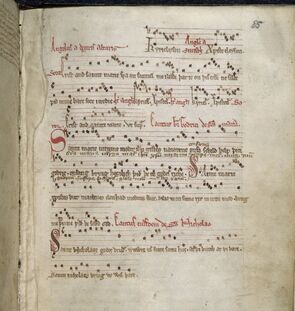 When I saw that St Bart’s was looking to commission a composer to create a new piece for their 900th Anniversary celebrations I was immediately interested as it encompasses many of my favourite compositional elements, medieval history, forgotten voices and telling stories through music. I did not know the Betjeman poem given as the text but was intrigued as to the identity of the mysterious Rahere whose ghost still walks St.Bart's. He is, in fact, the church's founder in 1123, but more than that he seems to have been an extraordinarily driven and well liked man and anecdotally an excellent musician. During my research into Rahere I came across the Book of the Foundation, written by one of the canons of the monastery, and finished by him after the death of Rahere's successor, Prior Thomas, in 1174 the first part of which describes Rahere's journey to Rome, illness and vision of St Bartholomew which led to his founding of the priory and hospital. This story was too good not to share so I created a collocation of Sir John Betjeman’s poem ‘St Bartholomew’s Hospital written for Master of Chirurgurie Wickham’ 7th July 1975 with words and phrases from the Book of the Foundation and bible verses that comment on Rahere’s story, from the darkness of his illness and vision in Rome to the light, healing and compassion offered by the church he founded. The text is set so that one Choir sings mostly the poem and one mostly the additional text. The overall mood of the piece provides a journey from darkness to light through brightening tonality and tempo encompassing the reflective yet celebratory nature of the anniversary celebration. Initially I intended to find a Troubadour song to use as a musical stimulus, reflecting the use of secular tunes as cantus firmus (a fixed melody around which the music is written) in sacred music of the medieval era, but it soon became apparent that most extant melodies are from later in the twelfth century. St Godric, (c.1065 to 1170, therefore a contemporary of Rahere) was a ship’s captain who spent the last sixty years of his life as a hermit near Durham. He wrote four songs which are recognised as the oldest songs in English for which the original musical settings survive. The text of one of these songs seems particularly apt for St Bart’s: Crist and Sainte Marie swa on scamel me iledde þat ic on þis erðe ne silde wid mine bare footen i tredde (Christ and Saint Mary so on crutches me led That on this earth nor silt with my bare feet I tread.) It is however the tune, (or my interpretation of it) that forms the basis of the music, being used as both a cantus firmus and melody with the opening and closing sections reflecting the ‘kyrie eleison’ found on the original song manuscript. I thoroughly enjoyed the research and composition of this piece and very much look forward to hearing it premiered during the 900th Anniversary Music Festival in September 2023. I AM BARTHOLOMEW Priory Church Choir dir. Rupert Gough St Bartholomew the Great: The Priory Church of St Bartholomew the Great, West Smithfield, London EC1A 9DS Wednesday 20th September 2023 19:00 A Choral Eucharist for Founder’s Day, the anniversary of the death of Prior Rahere Friday 29th September 2023 19:00 Gala Concert, The Choir of St Bartholomew the Great and the City of London Sinfonia Find out more at https://www.greatstbarts.com/900th-anniversary-music-festival/ 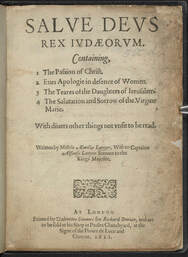 Salve Deus, Rex Judaeorum sets lines from the extraordinary 1611 poem of the same name by Aemilia Lanyer (forgotten voice one) and I was excited by this text from the moment I found it. The piece is subtitled ‘An Easter Cantata’ and is intended to deliver the dramatic narrative of the Passion. There are five movements, 'I. Prologue', 'II. Gethsemane', 'III. The Trial', 'IV. The Journey to the Cross' and 'V. Epilogue' that can be performed as a single piece with a duration of approximately twenty minutes or separately within the liturgy. It is scored for choir, chamber choir, solo soprano, organ and optional bell but could be sung by full or chamber choir throughout with a soloist from within the choir. The thing that most interested me about this text was the telling of the story from a female perspective, particularly the reference to Pilate’s wife (forgotten voice two), who becomes the solo soprano narrator in my interpretation. Pilate's wife merits a whole thirty-seven words in Matthew 27:19, KJV (also published in 1611), 'When he was set down on the judgment seat, his wife sent unto him, saying, Have thou nothing to do with that just man: for I have suffered many things this day in a dream because of him.' In Lanyer's poem this becomes 'O noble Gov'nor make thou yet pause, do not in innocent blood imbrue thy hands, but hear the words of thy most worthy wife who sends to thee to beg her Saviour's life.' These words in 'Movement III. The Trial' are set against the restless crowd singing crucifigerent, 'crucify him'. Other particularly beautiful phrases include, 'They slept in ease whilst Thou in paine did pray; Loe, they in sleepe and Thou in sorrow drown'd', ('Movement II. Gethsemane') and 'The sun grew darke and scorned to give them light, the moon and starres did hide themselves for shame.' ('Movement IV. The Journey to the Cross').
My thanks go to Luminosa for commissioning the piece for their tenth anniversary and to Rebekah Abbott, Artistic Director, Conductor and musical force of nature for all her work in shaping the performance and remaining committed to the piece throughout the past two years. Happy twelfth anniversary Luminosa and I can't wait to hear it!
Score available following premiere from Composers Edition at https://composersedition.com/salve-deus-rex-judaeorum/ Saturday April 2nd 2022, 7.30pm All Saints Church, Odiham, Hampshire, RG29 1ND Programme: McDOWALL: Da Vinci Requiem; WILLIS: Salve Deus; VAUGHAN-WILLIAMS: 5 Mystical Songs. Also includes a talk by Cecilia McDowall. Tickets at https://luminosamusic.com/index.php/box-office/  The Google is full of phrases like "Encourage new habits", "Using this time to focus on your creative ambitions", "Music is a great comfort, support, escape and creative outlet for us all", "COVID-19 is a real opportunity for musicians". Before I go on, let me say that I am painfully aware that family and friends are the most important things in these strange and frightening times and my heart bleeds for those I know and those I don't who have lost loved ones to this hideous disease. I also have the utmost respect for all key workers and those keeping our world turning and recognise that the challenges of remaining creative are very well down the list of important things in the world at present. I am actually still working full time in my teaching job, full time and more to be honest. It turns out that delivering meaningful lessons to Sixth Form Performing Arts and Music students at a time when they can't sing, play, dance, act and be together (with virtually no advance warning) is quite time consuming, if you want to do it properly and care about their well-being (which I always do.) I am on Easter Holiday at the moment. It's actually nice to have some time at home (!) even though we should have been setting off on a cruise of the Aegean islands and Istanbul with my 82 year old Mum (Happy Birthday Mum! We so don't make a habit of this, it was to be a real treat.) So yes, it's great to have time to actually compose! Only it's not that straightforward. Currently, I am working from the Music Room (aka the excellent converted garage, my own personal Aladdin's Cave of strange instruments, technology and music trivia), my wonderful husband is trying to house rough sleepers remotely from the shed where my eldest son started living when we ran out of bedrooms and my middle son is trying to produce his (excellent) Drum'n'Bass from the spare bedroom as his Uni course has effectively stopped with little further information forthcoming. His Dissertation is in lock-down in the studios and all his international summer festival DJ bookings have been cancelled. Living back with Mum and Dad was definitely not part of his plan (although I am secretly quite pleased.) The dogs (and dare I say chickens?) are thrilled to have three humans home all day every day. So, to return to my point, "Encourage new habits" is certainly an inevitability at the moment for all of us. We are all having to find ways to adapt to this strange new reality. Some are obviously difficult, I say again my heart absolutely goes out to those who are dealing with the coal face of this disease, both workers and families. but for most of us we are struggling with loss of freedom, fear of the virus, lack of face to face human contact and completely empty diaries. I am (as a natural optimist) finding some positives, partly because Mum wants me to, "Tell her something nice!" every day. I am enjoying actually being at home, spending time with my son, walking the dogs. I am seeing potential in Zoom meetings for my family when we are fundamentally scattered to the four winds. Would we have thought of doing a Zoom Meeting for Mum's birthday or a family meeting with my four boys in any other circumstances? Probably not, but I hope it is something that will become a part of our family life, as well as (obviously) real family gatherings rather than just virtual ones. "Using this time to focus on your creative ambitions" is more difficult. I am still very focused on my creative ambitions...always, it's basically what makes me tick. But creative? Not usually a problem...but not so easy at present. I am still writing. I've been writing music since I was seven (seriously), but in the present circumstances, with premieres and performances cancelled for the foreseeable future, no immediate deadlines and very limited physical interaction with other musicians it is more of a challenge than I would have imagined. Is there any point writing that piece if you know it may never be performed? Never actually be given life? I guess I am finding that temporarily my creative ambitions have changed. I am revisiting and revising earlier works (sometimes a really nice surprise!), re-crafting rather than creating new work but balancing this with writing new pieces with a specific and real purpose at this time. I am taking control of all the admin that I never have time to do usually....and let me tell you the admin as a composer frequently takes as much and more time than actually writing the music! I am updating my website and researching contemporary opera, The Mabinogion and Gwenllian, the twelfth century Welsh Warrior Princess...can you see where this is going? Actually I thought it was going towards three nights in October but now I'm not quite so sure....see the problem? "COVID-19 is a real opportunity for musicians". I am all for positive thinking but it's not a great time for musicians is it? Or anyone really. Talk about new opportunities to the musicians (like my son) who have seen all their bookings for the foreseeable future vanish. As one musician friend pointed out, even those that have been re-booked and re-scheduled are still basically work lost....no musician can actually perform in two places at once. However, what is inspiring is how musicians have gone, "OK, how do we make the best of this?" I am loving seeing the house concerts, the pieces posted online, the folk festivals happening virtually, the generous streaming of opera, theatre and musicals that is now a part of this brave new world but I can't quite do that myself, not yet anyway. So in summary, for me and I can only really speak for myself, the headlines are;
In conclusion, yes this is the most difficult time any of us can remember. Mum says in some ways it's actually worse than the War, because, "You can't see the enemy and at least you could talk to people". However as musicians we are lucky because it is true, "Music is a great comfort, support, escape and creative outlet for us all". Whilst being overtly creative may not be an option right now I wonder if there are things we will ultimately be able to take from this darkest of times that make us more creative and more connected than ever before when this is all over. 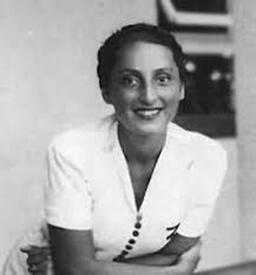 On Friday 8th March 2019 "Non Omnis Moriar" for Upper Voices was broadcast on BBC Radio 3 as part of the Afternoon Concert program for International Women's Day. You can listen at 1:26 here. The piece was recorded by the BBC Singers as part of a wonderful concert in association with BASCA reflecting on the Refugee experience in September last year. There is more information about the poet and the music at the end of this blog but I would like to let the poem speak for itself. it is quite simply one of the most powerful poems I have ever read and I can only hope my music does it justice. If you would like to listen the broadcast can be found here NON OMNIS MORIAR (Not all of me will die.) Text from the poem by Zuzanna Ginczanka (1917-1945) Not all of me will die – not my proud estate, Meadow tablecloths, wardrobe castles strong, acres of fine bedsheets, linen treasures great, And dresses, light dresses – these are my swansong. Because I leave not a single heir. Let your curious hands through my Jew things browse, if conscience allows. Meadow tablecloths, wardrobe castles strong, acres of fine bedsheets, linen treasures great, And dresses, light dresses, if conscience allows. You and your loved ones, recall my name and face, As you remembered me when showing them my hiding place. Drink to me! Drink to me! Drink to my grave and supposed wealth, my remains your prize. Drink all night, drink! And when the sun does shine, Start hunting for gem-stones, digging for gold, Through mattresses, fine drapes, candlesticks and dresses, light dresses. Feathers ripped from cushions, clouds of gutted quilts, Will snow upon your hands, turn your arms to wings, Pure white down will bind with my blood congealed, Letting you take flight, My angels, my kings. Non omnis moriar. The text used is based on a translation by Marek Kazmierski with permission
Zuzanna Ginczanka’s Jewish parents fled the Russian Civil War, settling in 1922 in pre-War Poland. Although, as a poet, she published only a single collection of poetry in her lifetime, the book O centaurach ("About the Centaurs"), it created a sensation. Ginczanka left Warsaw in June 1939 to spend her summer vacations with her grandmother. Following the outbreak of the Second World War her grandmother’s business was immediately expropriated and their living quarters requisitioned for Soviet officials. This forced Ginczanka to move to the larger and more anonymous Polish city of Lvov. Before they left, her grandmother packed all the family heirlooms and valuables like table silver into her luggage, both as a means of keeping it safe and to provide for Ginczanka's future dowry. Once she arrived in Lvov Ginczanka narrowly managed to avoid arrest by Ukrainian forces targeting Jewish population. Nazi Germany invaded Poland on 22 June 1941. The female concierge in the building where Ginczanka rented a flat saw her opportunity to rid herself of the unwelcome tenant and at the same time enrich herself. In the summer of 1942 she denounced Ginczanka to the Nazi authorities as a Jew hiding in her building on false papers. The Nazi police immediately attempted to arrest Ginczanka, but other residents of the building helped her escape. They finally succeeded in capturing her but this arrest did not result in Ginczanka's execution as on this occasion she escaped from captivity. The incident led Ginczanka to write her best known poem "Non omnis moriar". Zuzanna Ginczanka frequently changed hiding places, but was eventually detained in the notorious Nazi prison, Montelupich but she never admitted to being Jewish. There is no certainty as to the exact place of Ginczanka's death but there is a broad consensus on her having been executed by firearm, either by single firearm or by firing squad. Ginczanka was 27 years old. Musically the piece is based on elements of Jewish prayer modes that give rise to the dark cluster chords supporting the solo soprano lines. The poem contains lists of items that make up Ginczanka’s “proud estate”, her “Jew things”, reminding us of her grandmother packing the valuables before their flight to Lviv. These are set aleatorically, with every individual voice listing them with rising hysteria at different points throughout the piece. The phrase “Non omnis moriar” is also repeated at various points, binding the piece together and reminding the listener that they are listening to the words of a young woman writing what would become her lasting message to the world. In a bitter footnote, Zuzanna Ginczanka's betrayers were arrested and tried for collaborationism. "Non omnis moriar" formed part of the evidence against them. (This is considered by many scholars to be the only instance in the annals of history of a poem being entered in evidence in a criminal trial.) 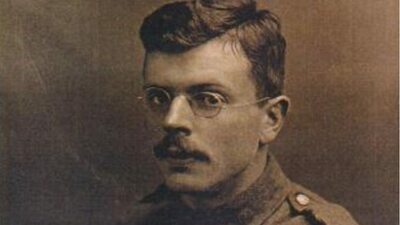 On Thursday evening (7th March) The Gesualdo Six will give the world premiere at Cadogan Hall of The Wind's Warning, my setting of the poem The Wind by Ivor Gurney. Gurney is still relatively unknown so I thought I would say a little about him. Ivor Bertie Gurney (28 August 1890 – 26 December 1937) was an English poet and composer, particularly of songs. Born in Gloucester he sang as a chorister at Gloucester Cathedral from 1900 to 1906 then won a scholarship to the Royal College of Music to study with Stanford who allegedly said he was "unteachable". Gurney suffered his first breakdown in 1913. Enlisted as a private soldier in the Gloucestershire Regiment, he began writing poetry. He was wounded in the shoulder in April 1917 then gassed in September the same year. In March 1918, Gurney suffered a serious breakdown, writing several songs whilst hospitalised despite the piano sounding, he said, like "a boiler factory in full swing because of the stone walls". He subsequently received an unconventional diagnosis of nervous breakdown from "deferred" shell shock. Gurney was regarded as one of the most promising men of his generation, publishing his second volume of poetry, War's Embers, in May 1919 to mixed reviews. He wrote many songs, instrumental pieces, chamber music and two works for orchestra, War Elegy (1920) and A Gloucestershire Rhapsody (1919–21). Sadly in 1922, his mental health caused him to be declared insane and Gurney spent the last 15 years of his life in psychiatric hospitals where he wrote both literary works and music. Much of his musical output remains unpublished and unrecorded. The Wind's Warning is a setting of what is believed to be his last poem. According to the editor of the collection in which the poem appears, it was written on the back of an Oxford University Press letterhead dated 6 March 1929 and signed 'Valentine Fane' by Gurney. (He frequently used different names on his later manuscripts.) The poem is a bleak reflection on the passing of time and lost opportunities. Musically the piece uses vocalisations to create the sound of the wind against which are set gently dissonant clusters. Melodic motifs drift in and out until the middle section, "At dawn a thin rain wept" which becomes more lyrical and tonal. The piece finishes with a return to the opening soundscape. I am delighted that The Gesualdo Six are performing this piece and very much look forward to hearing it! Tickets available https://cadoganhall.com/whats-on/choral-2018-19the-gesualdo-six/ Score coming soon at https://composersedition.com/composers/alisonwillis 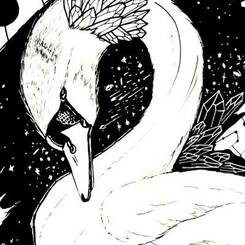 Well these things happen..... at least they do in English Folk Music. On Sunday 3rd March 2019 the wonderful Voces Inauditae will give the world premiere of my choral piece Swansong in Edinburgh. I thought in this blog we could explore the background to the piece.... The piece is based on the British folk song Polly Vaughan. The unfortunate Polly takes a walk by the setting sun and takes shelter among the bushes when the rain starts, pulling her apron over her head. Her boyfriend is simultaneously out hunting "with his dog and his gun" and on seeing what he believes to be a swan in the bushes shoots it dead. Overcome with remorse he runs and tells his father who helpfully tells him he must not leave the country before his trial. Polly appears as a ghost, first to Jimmy reassuring him that she knows it was not his fault and then during the trial to beg her uncle, (the judge) to let "Young Jimmy" go free, insisting they are never going to hang him "for the killing of the swan". This was clearly an unfortunate accident, however one might wonder why Young Jimmy thought shooting a swan was a good idea at all seeing as it has been illegal since at least 1482 (The Act of Swans) and is on record as being frowned upon since 1186. At the very least he would have been imprisoned. It would be good to think that this was an early example of nature conservation but it is generally considered that swans were the preserve of the rich, specifically the reigning monarch, because they tasted good. Anecdotal evidence suggests that they range from being tough, chewy and fishy, to being a bit like goose-flavored venison. Sir Peter Maxwell Davies however suggested it tasted "very dark and rich. It's a bit like pheasant with a hint of venison as well." Sir Peter, a keen environmentalist, said he had called the RSPB after a whooper swan expired near his property. He was advised, he said, to dispose of the bird. "I was under the illusion that it would be all right to eat the best parts, rather than feed them to the cat," he said. (The Guardian 19th March 2005) He was cautioned, but living north of the border thankfully prevented the then Master of the Queen's Music ending up in The Tower! Regarding provenance, Baring-Gould commented that there is some similarity to Celtic legends about "The Swan Maidens” and Roy Palmer recalls the story of the death of Procris in classical antiquity. A more mundane interpretation is that the invention of the rifle inevitably led to an increase in accidents while hunting! Musically the piece, for SATB choir, takes elements of the folk melody and reworks them using spoken word exhorting the audience to "listen" and sustained largely modal chords (in keeping with the folk tradition of the British Isles) but with a distinctly twenty-first century twist supporting the telling of the tale through the different voices. I have combined this with a Latin text, Cycni (13.77) by Martial, a Roman poet from Hispania (modern Spain) best known for his twelve books of Epigrams, published in Rome between AD 86 and 103 Dulcia defecta modulatur carmina lingua cantator cygnus funeris ipse sui. As how to swans, their truth's reward, belong A joyful death, and sweet expiring song. As a folk singer myself, (Polly Vaughan is one of my favourite songs to sing!) I hope I have managed to tell the story adequately. My thanks to Chris Hutchings and Voces Inauditae and all very best wishes for the concert on Sunday...I very much look forward to hearing the recording! Ali  I am absolutely delighted to hear that my piece The Wind's Warning has been selected as the winner of The Gesualdo Six's composition competiton. It is a particular honour as the judges read like a who's who of contemporary choral music, Cheryl Frances-Hoad, Nigel Short, Kate Johnson, John Rutter and of course Owain Park. I am looking forward to the premiere at Cadogan Hall on March 7th this year. The piece features wind like vocal sounds in a setting of a dark poem by Ivor Gurney, believed to be the last poem he wrote. It has also been my pleasure to attend two CD launches in the last few weeks, both of which have pieces of mine on them. Snow Queens by the awesome Juice Vocal Ensemble is a collection of winter music by contemporary composers. Kerry Andrew, Sarah Dacey and Anna Snow's voices are a magnificent blend and their innovative choice of repertoire and attention to detail make this a very special CD...not just for Christmas! My piece, The Ballad of the Harp Weaver, sets a poem by Edna St. Vincent Millay. It tells the story of a mother desperate to clothe her young son during the harshest winter for many years. They have nothing but a "harp with a woman's head that nobody will buy", if you want to know the rest of the story listen here. I do love to tell a story in music and this is definitely influenced by another of my passions, English folk music! 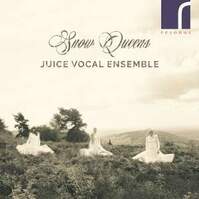 The second launch was for This Day by the equally fabulous Blossom Street, featuring works by female composers to mark the centenary of women getting the vote. Sung by the female voices of the choir and directed by Hilary Campbell both the launch concert and the CD are stunning, exploring a wide range of music representing frequently under-represented women composers from the past hundred years. I couldn't be more pleased with the recording of Do Not Stand at my Grave and Weep, a setting of the poem of the same name by Mary Elizabeth Frye. The poem was allegedly inspired by a German Jewish woman, Margaret Schwarzkopf, who was staying with Mary and her husband. Margaret was worried about her mother who was ill in Germany but she had been warned not to return home because of increasing unrest. When her mother died, the heartbroken young woman told Frye that she never had the chance to "stand by my mother's grave and shed a tear". 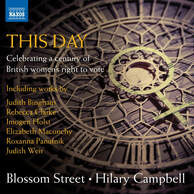 My setting uses cluster chords and elements of Jewish scales to tell this story. It was written in memory of my Uncle Francis, a fine musician and a truly gentle man. You can listen here. I am also delighted to report that at time of writing Snow Queens has entered the classical charts at 22 and This Day at 11. Congratulations to them both! World premiere March 20th 2018 at Holy Trinity, Sloane Square, London (Sold out!)
London Concert Choir (cond. Mark Forkgen) Listen to the premiere here.... SATB and piano/organ Versions available for SSA, 1 part and 2 part choirs with piano/organ. Scores available from Composers Edition (with huge thanks for their support) here. composersedition.com/alison-willis-a-light-not-yet-ready-to-go-out One in eight women in the UK will face breast cancer in their lifetime. And every 45 minutes, another woman dies from the disease. 50% of proceeds from sales go to support the work of Breast Cancer Now, the UK's largest Breast Cancer charity whose aim is that by 2050 everyone who develops breast cancer will live. The piece is in three movements that can be sung individually or together as a whole and is intended to be achievable by many different choirs.
This piece was commissioned by Adrienne Morgan. However it is also inspired by Adrienne Morgan. Adrienne is an extraordinary woman, she is a scientist, a campaigner and many things to many people. The libretto of the second movement, whilst about every woman is compiled from the things people said about her when, struggling to find up-beat words that worked, we crowd sourced the lyrics (subsequently edited by Adrienne’s niece Charlotte Morgan.) Adrienne also has incurable breast cancer. From the first conversation we had she made it very clear that this piece was to be a celebration of the things that were important in life. I think maybe our favourite lines are those in Movement III, taken from the Epic of Gilgamesh, an epic poem from ancient Mesopotamia that is often regarded as the earliest surviving great work of literature. They are spoken by Siduri, an "alewife", a wise female divinity associated with fermentation (specifically beer and wine), as she attempts to dissuade Gilgamesh in his quest for immortality, urging him to be content with the simple pleasures of life. “But until the end comes Let every day be full of joy. Let music and dancing fill your home, Savour your food, wear bright clothes, Love the child that holds your hand For these alone are the concerns of humanity.” Whilst written to be performed together each movement can also be performed separately. We hope you enjoy both singing and listening to our piece. I would be delighted if you would let me know if you are performing the piece and consider having a retiring collection for Breast Cancer Now. Thanks! Performed by Selwyn College Choir, Cambridge, prepared by Sarah MacDonald and conducted by Michael Bawtree, Simon Hogan (organ), Onyx Brass (trumpet solo). With thanks to John Armitage Memorial Trust. 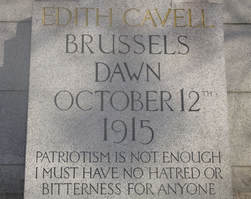 Norfolk born Edith Cavell was executed by German firing squad at dawn on October 12th 1915 having been found guilty of treason by a court martial. As a nurse in German occupied Brussels she worked with patients of all nationalities and helped some two hundred Allied soldiers escape to safety in the neutral Netherlands. Her execution caused worldwide condemnation. The text for this piece was inspired by two short poems by award winning poet Chloe Stopa-Hunt. The poems combine words that Edith Cavell is known to have spoken to the Anglican chaplain, the Reverend Stirling Gahan, including "In life, in death, O Lord", a quotation from the final verse of 'Abide With Me' that they repeated together on the night before her execution. A motif from that hymn is repeatedly sung by the choir towards the end of the piece. The other part of the text is drawn from the authorised statement given by Dr. Alfred Zimmerman (German Under-Secretary for Foreign Affairs) on October 24th 1915 in response to the international outcry about the execution of a woman. During the research for this piece it struck me that in many instances Cavell and Zimmerman were saying the same thing. Both seem to say that she knew what she was doing and that she was aware of what the punishment would be if she were caught. Both imply that she was judged justly. The text reflects this by using shared words as pivot points between different sections of text. We must remember and honour the men that died in World War I but let's not forget the women who also suffered in so many ways as a result of this terrible conflict. Edith Cavell, an ordinary woman who did extraordinary things. We will remember them. EDITH CAVELL 1865 - 1915 |
Details
AuthorAlison Willis is a composer and musician based in the East of England. Archives
May 2024
Categories |


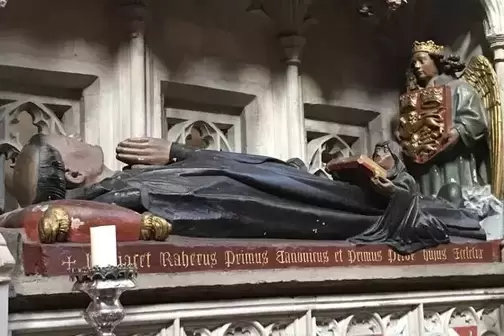
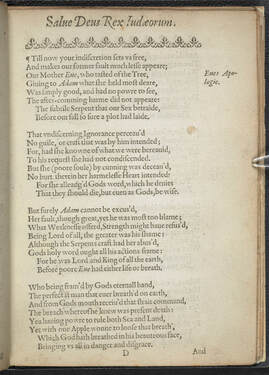
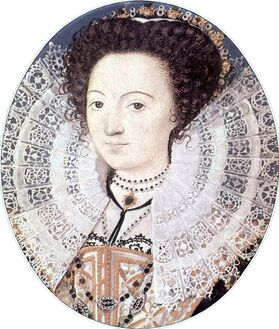
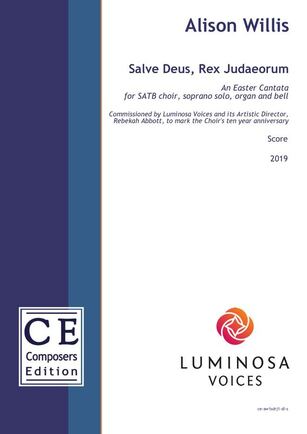
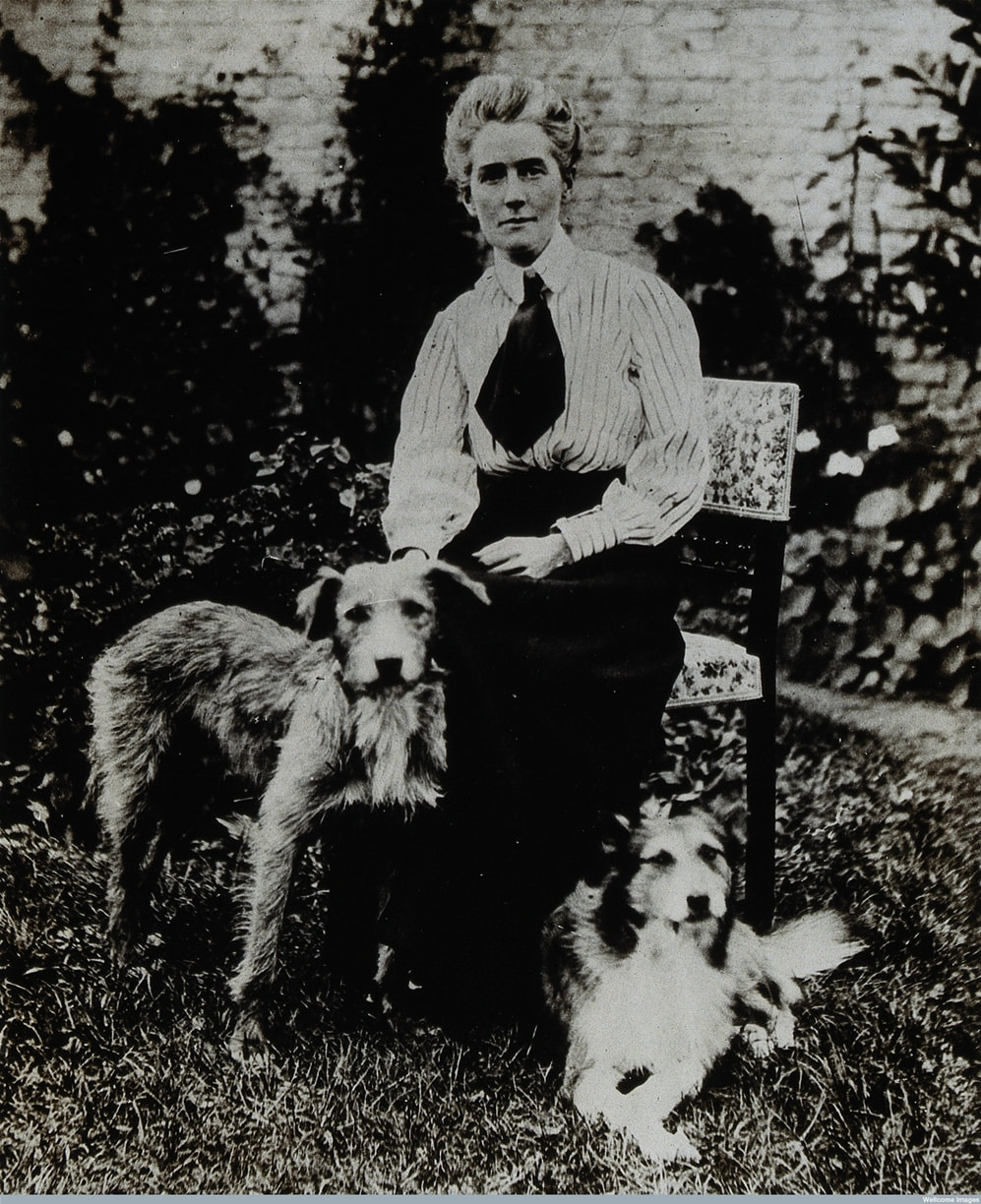
 RSS Feed
RSS Feed